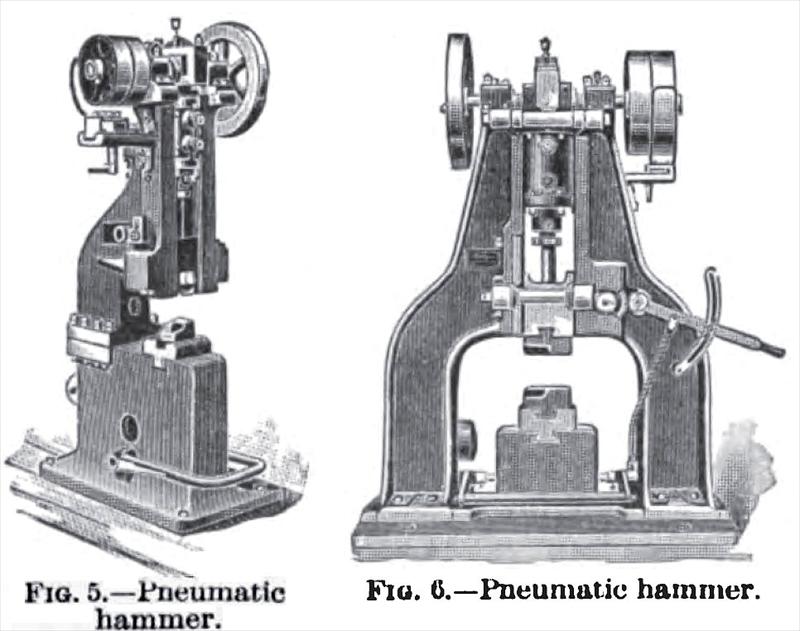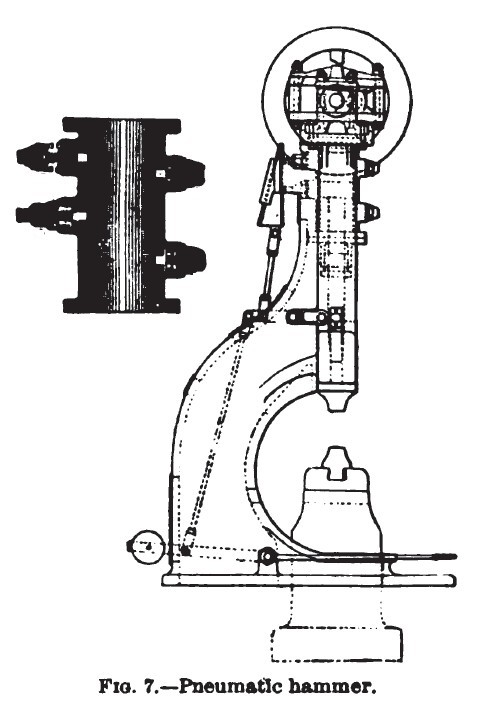|
Title: |
1895 Article-Wais & Roos Punch & Shear Co., Pneumatic Hammer |
|
Source: |
Modern Mechanism 1895 pg 416-417 |
|
Insert Date: |
6/16/2011 9:29:50 PM |
|
Pneumatic Hammer—The Hackney pneumatic hammer is shown in Pigs. 5, 6 and 7. Hammers of this kind strike their blows through power derived from air, which has been compressed in a cylinder by a piston. The air acts when imparting its force precisely like a powerful compressed spring suddenly released, and, in fact, it is such a spring; hence such hammers are sometimes called air-spring hammers. Fig. 5 is the single standard hammer designed for comparatively light forging. Fig. 6 is a double standard hammer, and is suitable for heavy work. The same principles of working are, however, embodied in each, as is shown in the diagram cut (Fig. 7). The crank-yoke is attached directly to the air-cylinder below, which is thus given a vertical reciprocating motion in the slides. Within this cylinder is a piston attached to the hammer-head, the air, more or less of which is confined above and below the piston, serving to transmit motion to it and to cushion it at the end of each stroke. The admission and confinement of air in the cylinder are controlled by valves, by which air may not only be confined above the piston but also below it, thus holding the piston between two air-springs, each of which opposes the action of the other; and this opposition is regulated at the will of the operator, so that it may be increased till the force of the blow is reduced to nothing, or diminished so that the full force of the hammer is realized; the intensity of the blow depending upon the position of the valves. |
|
 1895 Wais & Roos Punch & Shear Co., Pneumatic Hammer
1895 Wais & Roos Punch & Shear Co., Pneumatic Hammer
 1895 Wais & Roos Punch & Shear Co., Pneumatic Hammer
1895 Wais & Roos Punch & Shear Co., Pneumatic Hammer
|
|